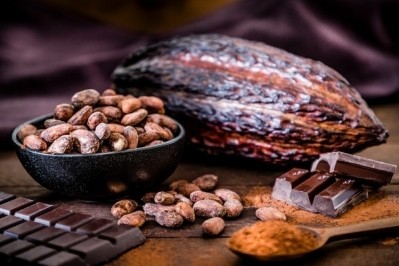Commodities
ICCO warns of potential price rises for consumers amid cocoa supply concerns

On the markets, cocoa prices rallied after the heavy rains in Cote d’Ivoire slowed down the mid-crop harvest and truck shipments to the Ports. New data reveals that the country’s farmers last shipped 29,910 tons of cocoa to ports for June 19-25, up +16% y/y.
The Cote d’Ivoire government reported that farmers sent a cumulative 2.22 MMT of cocoa to Ivory Coast ports for the 2022-23 marketing year (October 1 through June 18), down -2.2% y/y.
Barchart.com reported that cocoa prices also have support on concern that an El Nino weather event could undercut global cocoa production. On 8 June, the US Climate Prediction Center said that sea surface temperatures across the equatorial Pacific Ocean had risen 0.5 degrees Celsius above normal, and wind patterns have changed to the point where El Nino criteria have been met.
El Nino weather
Cocoa prices rallied to 12-year highs in 2016 after an El Nino weather event in 2015-16 caused a drought that hampered global cocoa production.
The ICCO’s (International Cocoa Organization) latest monthly report projects that global 2022-23 cocoa stockpiles would fall -3.5% y/y to 1.653 MMT. ICCO also said, "The expectation of a supply deficit has been compounded with weather variations, especially in West Africa."
On the bearish side, the ICCO forecast 2022-23 global cocoa production would climb +4.1% y/y to 5.017 MMT, and global cocoa grindings would fall -0.6% y/y to 5.027 MMT.
“As much as supply concerns continue to support the rally seen in prices, the demand for cocoa beans could potentially pull the brakes on the price hikes. With prices of other ingredients like sugar rising and inflation causing price increases in other areas of the supply chain, confectionery companies are likely to face hurdles in their operations and passing the cost of production increases to consumers cannot be ruled out.
“Will such an occurrence affect the current optimism in cocoa demand and consequently reverse cocoa price rallies? Future reports from major companies on their chocolate confectionery sector and grindings data from regional cocoa associations may provide some insights on how cocoa demand will fare,” the ICCO said in its May 2023 report.
Signs of stronger global cocoa demand are bullish for prices, according to analysts. On April 21, the National Confectioners Association reported Q1 North American cocoa grindings rose +2.4% m/m but fell -4.4% y/y to 109,666 MT. On April 20, the Cocoa Association of Asia reported that Q1 Asia cocoa grindings rose +4.09% y/y to 222,028 MT. On April 13, the European Cocoa Association reported that European Q1 cocoa grindings rose +0.5% y/y to 375,375 MT, the highest for a Q1 since 1999.
On April 19, a cocoa exporter group that includes six of the world's biggest cocoa grinders reported that its Q1 cocoa processing jumped +22% y/y to 189,405 MT.
Sources: barchart.com, reuters.com. ICCO











